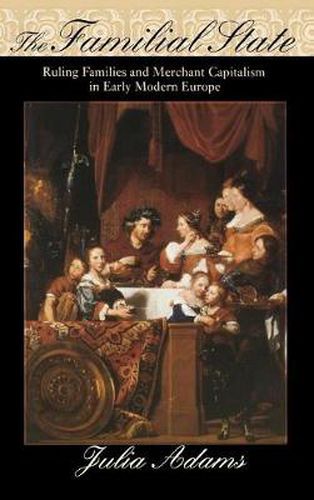Readings Newsletter
Become a Readings Member to make your shopping experience even easier.
Sign in or sign up for free!
You’re not far away from qualifying for FREE standard shipping within Australia
You’ve qualified for FREE standard shipping within Australia
The cart is loading…






The seventeenth century was called the Dutch Golden Age. Over the course of eighty years, the tiny United Provinces of the Netherlands overthrew Spanish rule and became Europe’s dominant power. Eventually, though, Dutch hegemony would collapse as quickly as it had risen. In The Familial State, Julia Adams explores the role that Holland’s great families played in this dramatic history. She charts how family patriarchs - who were at the time both state-builders and merchant capitalists - shaped the first great wave of European colonialism, which in turn influenced European political development in innovative ways. On the basis of massive archival work, Adams arrives at a profoundly gendered reading of the family/power structure of the Dutch elite and their companies, in particular the VOC or Dutch East India Company. In the United Provinces, she finds the first example of the power structure that would dominate the transitional states of early modern Europe - the familial, state. This organizational structure is typified, in her view, by paternal political rule and multiple arrangements among the family heads.
$9.00 standard shipping within Australia
FREE standard shipping within Australia for orders over $100.00
Express & International shipping calculated at checkout
Stock availability can be subject to change without notice. We recommend calling the shop or contacting our online team to check availability of low stock items. Please see our Shopping Online page for more details.
The seventeenth century was called the Dutch Golden Age. Over the course of eighty years, the tiny United Provinces of the Netherlands overthrew Spanish rule and became Europe’s dominant power. Eventually, though, Dutch hegemony would collapse as quickly as it had risen. In The Familial State, Julia Adams explores the role that Holland’s great families played in this dramatic history. She charts how family patriarchs - who were at the time both state-builders and merchant capitalists - shaped the first great wave of European colonialism, which in turn influenced European political development in innovative ways. On the basis of massive archival work, Adams arrives at a profoundly gendered reading of the family/power structure of the Dutch elite and their companies, in particular the VOC or Dutch East India Company. In the United Provinces, she finds the first example of the power structure that would dominate the transitional states of early modern Europe - the familial, state. This organizational structure is typified, in her view, by paternal political rule and multiple arrangements among the family heads.